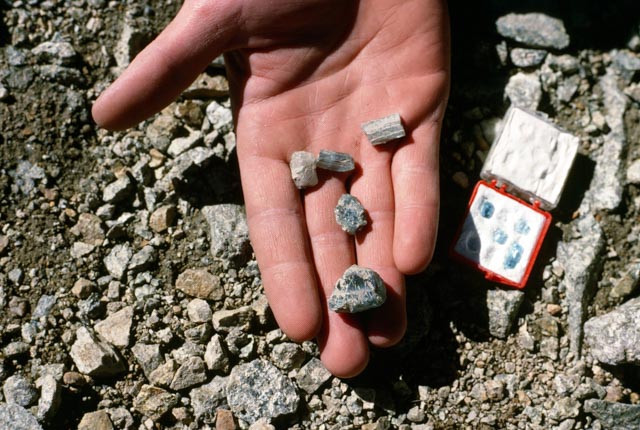Did you know hail causes nearly $1 billion in damage to property and crops every year in the United States? That’s significantly more than the damage done by tornadoes. Fortunately, your chances of being killed by falling hail are much less than being struck by lightning; however, it does happen:
IN 1942 A BRITISH FOREST guard in Roopkund, India, made an alarming discovery. Some 16,000 feet above sea level, at the bottom of a small valley, was a frozen lake absolutely full of skeletons. That summer, ice melt revealed even more skeletal remains, floating in the water and lying haphazardly around the lake’s edges. Something horrible had happened here.
A National Geographic team set out to examine the bones in 2004. Besides dating the remains to around 850 AD, the team realized that everyone at the “Skeleton Lake” had died from blows to the head and shoulders caused by “blunt, round objects about the size of cricket balls.”
This eventually led the team to one conclusion: In 850 AD, this group of 200 some travelers was crossing this valley when they were caught in a sudden and severe hailstorm. An ancient folk song of the area describes a goddess so enraged at outsiders who defiled her mountain sanctuary that she rained death upon them with ice stones “as hard as iron.”[1]
The seventh of the ten plagues of the Exodus was a plague of hail:
“Behold, about this time tomorrow I will cause very heavy hail to fall, such as never has been in Egypt from the day it was founded until now. Now therefore send, get your livestock and all that you have in the field into safe shelter, for every man and beast that is in the field and is not brought home will die when the hail falls on them.” Then whoever feared the word of the LORD among the servants of Pharaoh hurried his slaves and his livestock into the houses, but whoever did not pay attention to the word of the LORD left his slaves and his livestock in the field … There was hail and fire flashing continually in the midst of the hail, very heavy hail, such as had never been in all the land of Egypt since it became a nation. The hail struck down everything that was in the field in all the land of Egypt, both man and beast. And the hail struck down every plant of the field and broke every tree of the field (Exodus 9:18 – 21; 24 – 25).
Why don’t people listen to warnings? Perhaps they feel like they know better. (“The recommended speed is 25, but I think I can take the curve at 50.”) Perhaps they aren’t paying attention. (The ever-present “distracted driving.”) Maybe they didn’t believe it. Friends, it’s time to get ready. There is a great day coming!

[1] Downloaded from https://www.atlasobscura.com/articles/hail-no-an-account-of-the-worlds-biggest-deadliest-hailstorms March 29, 2021


